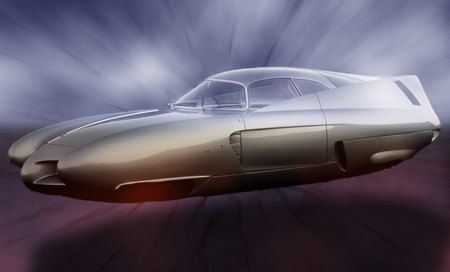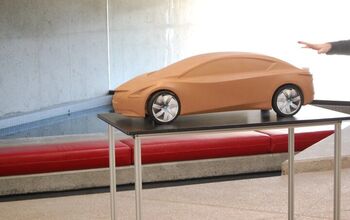Nissan's Next Nanny
The Detroit News gives us the inside dope on Nissan's latest gadget, which allows drivers to pay even less attention to their driving than they do currently. Nissan's engineers have developed a system that combines radar sensors with a computer to "make a car that judges dangers on its own" and lifts the gas pedal to warn the driver of possible collisions. If the driver takes his foot off the accelerator in response, the car will brake to a stop. However, if the driver keeps his foot on the gas, the car will continue to go. So now, that person on the cell phone in the car in front of you suddenly has to wake up and make a split-second assessment: is the car giving a false alarm and can they keep going, or is something happening that requires the car to stop? Nissan also has a lane departure prevention system that "swivels a car back into its lane if it swerves off" which will be offered later this year on the Infinti EX. Wouldn't it just be easier to pay attention to what's going on around you?
More by Frank Williams


































Comments
Join the conversation
Every new gadget seems to follow a strange cycle of it being on, then being able to be turned off, then not being able to be turned off unless the car thinks its okay, etc. All this is leading us to cars that will drive for us, and as much as I hate that, so long as it is not mandated that cars drive themselves, I think it's great. OTOH, no level of technology may ever meet the standard necessary to overcome the legal liabilities.
Having been just about taken out by a Ford Explorer this weekend, whose owner was steering with his knees while texting away on his Blackberry, I sometimes think these sorts of driver aids can't come quick enough.
210delray - glad to see you're alive and kicking. If "...he IIHS is in favor of methods that work to cut the death, injury, and property damage toll on the nation’s highways.", then where is the follow up press release on why the driver of the Ford Explorer is 17 times more likely a fatality than the RX-330 driver? Why no word about ABS after the mid 90's? But good on the IIHS for helping to get drunks off the highways and for promoting the automatic "skill" offered by ESC (even automatic is better than nothing). And no doubt they'll weigh in on the efficacy of the lane departure warning when it becomes a generally accepted accessory.
edgett: Here you go — more info on ABS (the latest IIHS study was in 2001): http://www.iihs.org/research/qanda/antilock.html Same conclusion: no net effect one way or the other. The reasons for this are still unclear, but since ESC includes ABS as its foundation, this is a moot point (ESC will be required on all vehicles by the 2012 model year and is rapidly being phased in as we speak). As for the differences in death rates, this is a tough question to answer. As you know, the starting point for analysis of most crashes is the rather simplistic police report. The police are concerned with three main things, in this order: making sure the injured receive medical care ASAP and getting the dead to the morgue, clearing the roadway, and assessing who was at fault (as in what traffic laws were violated). The vast majority of fatal crashes are not analyzed in depth, unlike the case for airplane, train, or bus crashes. The NHTSA does conduct a “National Analysis Sampling System,” which attempts to make a more thorough analysis of a small nationally representative subset of crashes, but this has many limitations and shortcomings. For example, investigators don’t go to the scene of the crash right after it’s occurred. They must examine the vehicles and crash scene later. They also use a rather simplistic computer modeling program based on flat barrier crashes and the extent of vehicle "crush" to estimate the impact speeds involved in all manner of crashes.